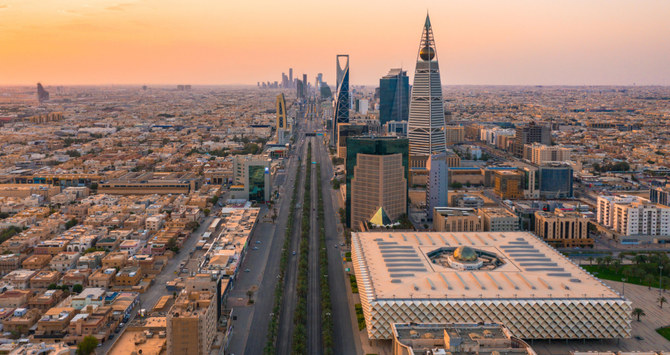RIYADH: Foreign ambassadors to Saudi Arabia have been passing on their Eid Al-Fitr greetings to the government and people of the Kingdom.
The US Mission in the Kingdom, tweeted: “The US Ambassador to Saudi Arabia John Abizaid on behalf of all Americans living and working in the Kingdom of Saudi Arabia greeted saying, I would like to take this opportunity to wish Eid Mubarak to the Custodian of the Two Holy Mosques King Salman, Crown Prince Mohammed bin Salman, and all our Saudi friends and colleagues as you celebrate this special holiday.
“May your Eid be joyous, even in this challenging time as we work together to fight (the) coronavirus (disease) COVID-19.”
In a tweet, the Australian ambassador in Riyadh, Ridwaan Jadwat, said: “Wishing everyone celebrating the end of Ramadan a joyous Eid Al-Fitr on behalf of my family and our embassy team: #EidMubarak!”
Posting a video message to the Saudi people, he added: “May I say on behalf of my family and the team here at the Australian Embassy in Riyadh, I hope that you have a safe, happy and blessed Eid Al-Fitr.”
Indian Ambassador to Saudi Arabia Dr. Ausaf Sayeed, said: “May you all be blessed with #Peace, #Joy and #Love on #EidUlFitr and always! #EidMubarak to you and your families.”
Eid Al-Fitr celebrations this year have been curtailed due to the COVID-19 pandemic. The holy month of Ramadan and the festival of Eid in 2020 will be remembered as a time when traditions had to be broken to stop the spread of the deadly virus.
In a message addressing Saudis, the Pakistani community in the Kingdom, and Muslims around the world, Pakistan’s consul general in Jeddah, Khalid Majid, said: “This year, we are celebrating Eid in a very simple and somber manner. Undoubtedly, the world is passing through one of the most difficult times due to the COVID-19 global pandemic, which has badly affected our socio-economic life.”
He added that many people had already lost their lives to the disease while large numbers were still battling with it.
“Besides, the death of around 100 of our Pakistani brethren in a recent PIA (Pakistan International Airlines) plane crash at Karachi has also left us sad and gloomy. My sincere prayers are with all those who lost their lives and also with their bereaved families. At the same time, I also sincerely pray for the good health and speedy recovery of all the COVID-19 patients.
“My deep appreciation and prayers for continued success also goes to all our frontline soldiers including doctors, paramedics, law enforcement agencies and all other involved departments, who are fighting against this deadly virus, at the risk of their own lives.
“I take this opportunity to convey my deepest gratitude to King Salman and Crown Prince Mohammed bin Salman for taking very effective measures against the COVID-19 pandemic. Provision of best health facilities and efficient other services across the Kingdom are instrumental in effectively tackling the situation. It is evident from these steps that the recovery rate in the Kingdom is one of the highest in the world,” Majid said.
“I advise all Pakistanis living in Saudi Arabia to continue abiding by all local health and safety instructions, including those relating to social distancing, so that we can all be safe and play our part in strengthening the efforts of the Saudi government in defeating this pandemic.”
















